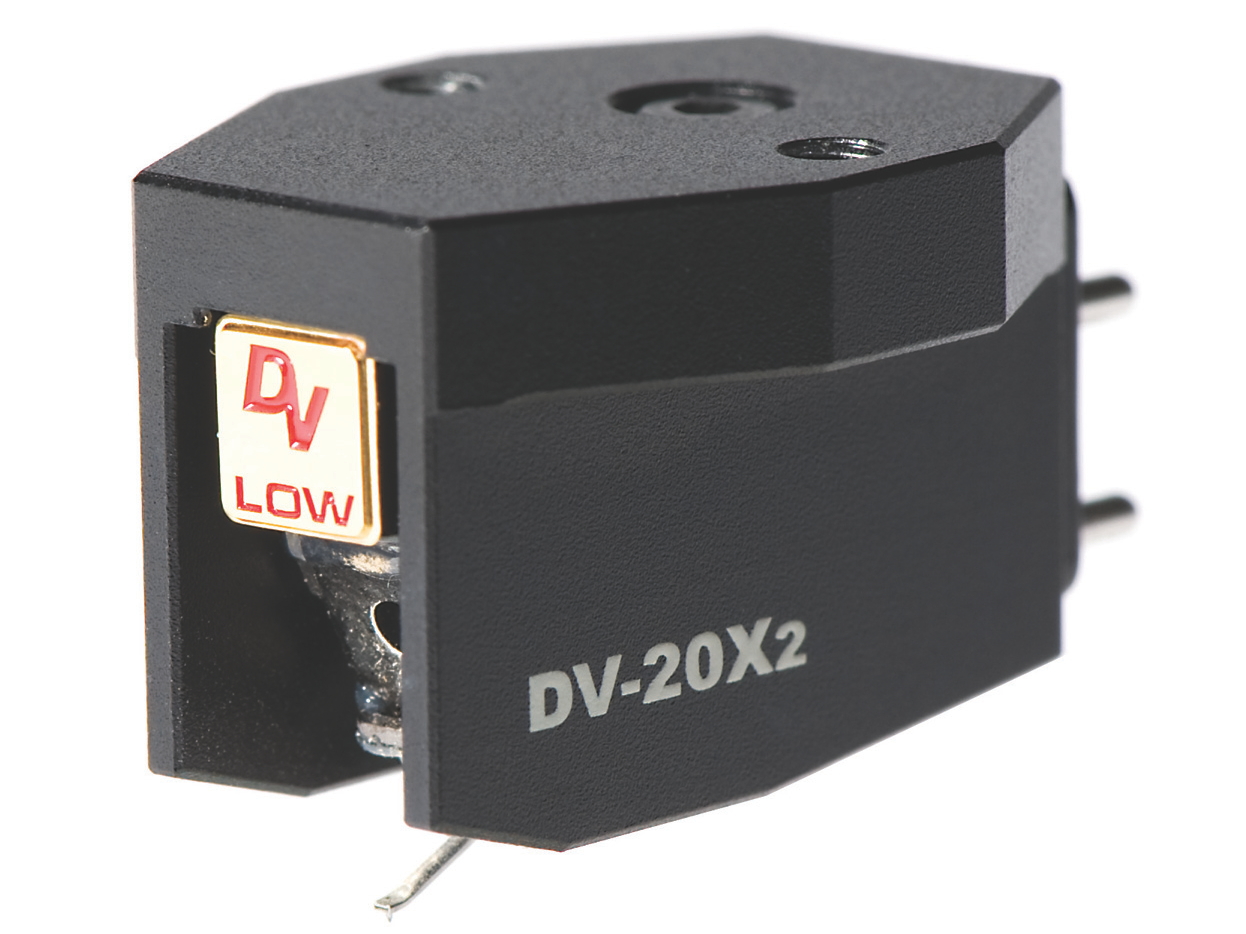TechRadar Verdict
The latest body change keeps Dynavector at the forefront of the affordable MC market
Pros
- +
Revealing and open sound
- +
Well-built
- +
Easy-to-align
Cons
- -
No stylus guard makes for less than relaxed installation
Why you can trust TechRadar
We have yet to encounter a Dynavector cartridge that we don't like, but new ones don't come along very often, so when two arrive like buses on a cold night, it's a cause for celebration.
As is the Japanese company's style, the new DV-20X2 is available in low and high output varieties, the low output version requires a transistor phono stage or step-up device, while the high can be used with valve and MM phono stages.
This, combined with a traditional two-gram down-force, makes the DV-20X2 a very easy cartridge to accommodate on modern turntables, or even older ones as long as they don't have a very low mass arm.
Flux control
As the name suggests, the 20X2 is the second incarnation of the 20X, a cartridge whose lineage goes right back to the eighties.
The 20X2 distinguishes itself with a new body – in fact, the body from the £1,000 XX2 MkII. It's made in machined aluminium and provides a rigid mounting for the otherwise nude generator and magnets. The flanks provide protection for the delicate innards and make alignment considerably easier.
This is the easiest Dynavector we've ever set up – hardly any kerfuffle at all.
Sign up for breaking news, reviews, opinion, top tech deals, and more.
The cartridge benefits from Dynavector's softened magnetism and flux-damping technologies. These are two methods by which the company's founder Dr Tominari, claims to minimise magnetic fluctuation. Something that while only minimal in MC cartridges is, in the doctor's opinion, detrimental to sound quality. It's possible to see the coil winding that is designed to damp stray magnetic flux on the front pole piece of the 20X2.
The 20X2's stylus is the same micro-ridge as found in Dynavector's 17D3 moving coil. It's bonded to a 6mm-long aluminium pipe cantilever. Signal is generated with the aid of neodymium magnets, the H model producing 2.8mV and the L a more modest 0.3mV.
Solid gone
The new bodywork makes the 20X2 look like a lot more cartridge than its predecessor, but this Dynavector is as solid as anything in the needle world. Value is really down to sound quality for the money, there are no features to consider, but if there were then ease of installation puts this in the top league.
Its competition comes from Goldring's Legacy (£595), the Ortofon Rondo Blue (£525) and the Grado Reference Master (£599), a wooden-bodied moving magnet.
The Goldring is probably the strongest, but we didn't find that it has quite the openness and power
of this Dynavector.
On the record
We set the 20X2L up in a Funk FX-R tonearm aboard the trusty Townshend Rock 7 and got the vinyl spinning, a process that continued way longer than the job required, but it was just too good to stop.
It took a little bit of fettling to get the best result – raising the downforce to the maximum recommended proved beneficial, for instance – but with that done there was an awful lot of musical detail flowing from the speakers.
It doesn't have the speed of its brother, the Karat 17D3, and the bass is a little on the relaxed side,
but the midrange and highs are extremely fine.
With a great phono stage, it achieves a degree of openness that's truly mesmerising. That's with the right record, of course, but that's almost any record that ain't heavily compressed and contains great music as far as we can tell.
The way that the various instruments and voices in a mix are presented in relation to one another is particularly good, as is the ability to cope with denser passages without the soundstage closing up.
Match point
Just to make sure all the bases were covered, we tried the 20X2L in an SME 20 with Series V arm.
This resulted in a similarly inspiring result and one where the bass was distinctly tighter. Which suggests
that this more conventional turntable is a better tonal match.
We also found that the DV likes a high-input impedance, 47kohm is usually best for MMs, but this MC sounded its best with the phono stage thus set.
This is a powerful, precise, revealing and open cartridge that warrants hi-res ancillaries, but will work a treat in any respectable turntable. In other words, the search for a Dynavector that we don't like will have to go on!
